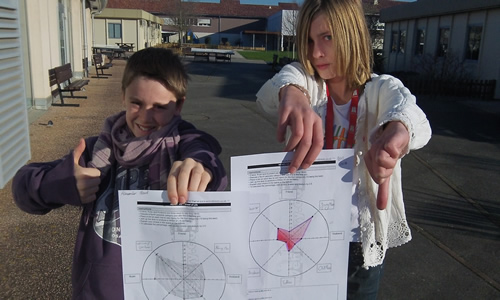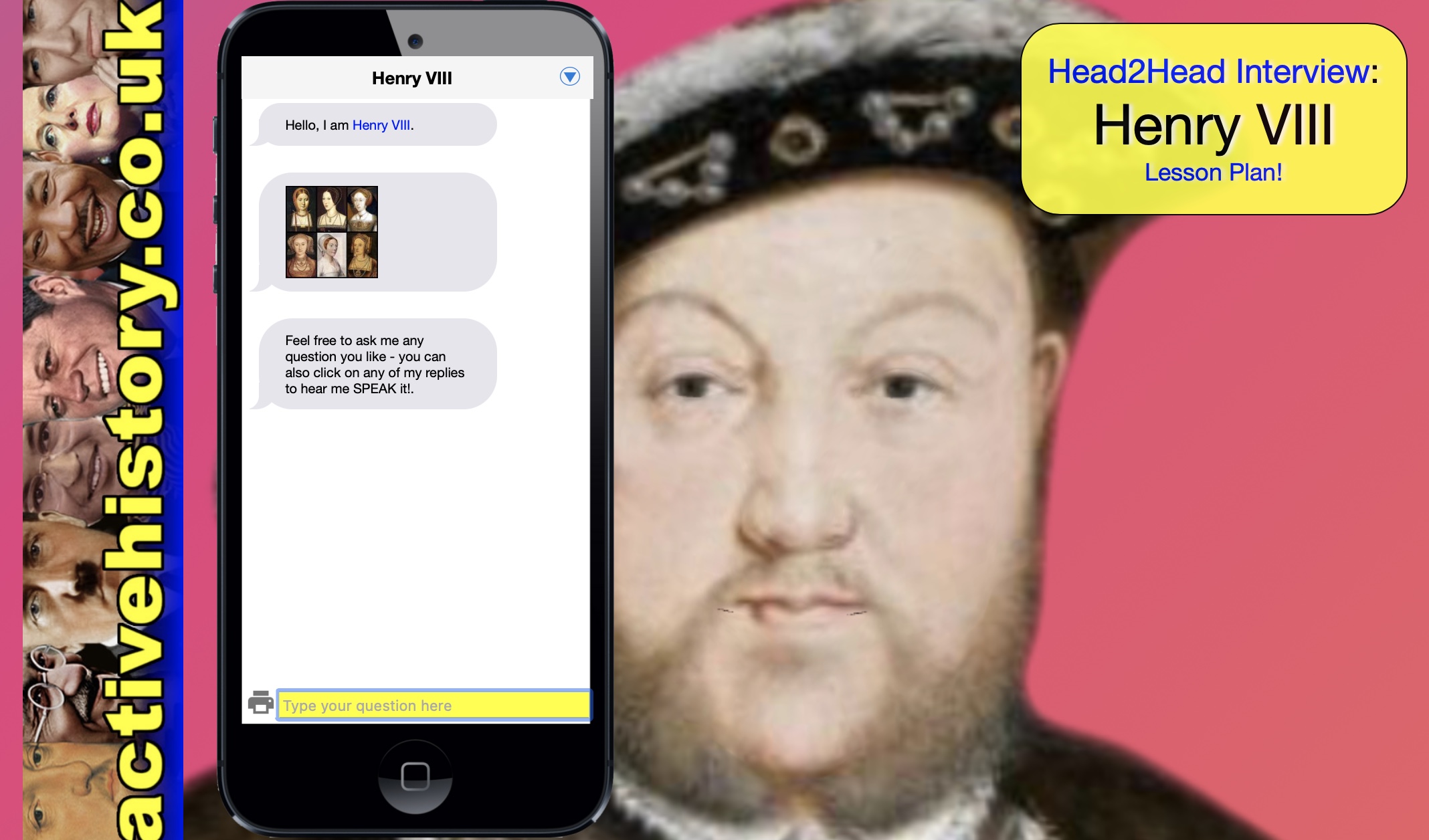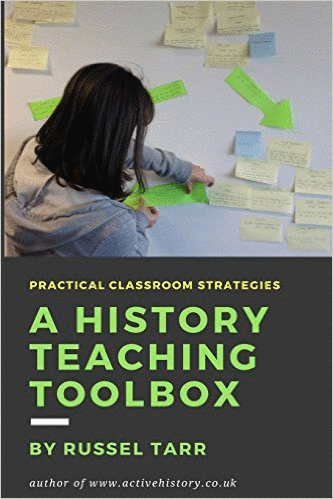World History teaching resources for the high school classroom: lesson plans, worksheets, quizzes and simulation games for KS3, IGCSE, IB and A-Level teachers.
Stage 1: Forming interpretations based on the essential evidence
Raw Material: Does this evidence suggest Henry was a Hero, or a Villain? | Accompanying Multimedia Presentation
In the first lesson, pairs of students are given this sheet of information slips to cut up and then arrange into two piles: evidence that Henry was a hero, and evidence that he was a villain. Evidence they are not sure of could be placed somewhere in the middle. Then, the teacher discusses each slip of information using this presentation to add extra detail and to highlight how just about every point raised could be interpreted in different ways. By the end of the lesson the students should be pretty evenly divided as to whether Henry was a hero or a villain (and whether it depends really on whether you are rating him as a husband, a ruler, a father...)
Classroom Trial: Was Henry a Hero, or a Villain? [optional]
This roleplay exercise divides the class into three teams - prosecution, defence, and judges. The prosecution and the defence gather evidence and prepare their case whilst the judges select some surprise exhibits to use in the trial. The trial itself should be a lively lesson which encourages students to make deductions and question the reliability of their "witnesses".
Stage 2: Conducting Further Independent Research
Apart from the surprise exhibits that can be interspersed through the remaining lesson time, the main way in which students can gain extra information should be through this interactive interview with Henry VIII.
Video and accompanying worksheet
This framework document instructs students to take minute-by-minute notes on an accessible video documentary, to choose images to accompany the various 'chapters' in the story of Henry's life, and to decide which elements suggest he was a 'hero' and which a 'villain'.
Interview King Henry VIII!
As the final part of their research on Henry, students interview the King from "beyond the grave" in this award-winning activity. Their objective is to gather at least five fresh pieces of evidence which backs up their side of the case ("evil" or "wonderful").
Stage 3: The "Wheel of Life" Infographic
Extension / Homework activity: Henry VIII Wheel of Life
Students rate Henry VIII according to various criteria and "join the dots" in this diagram to produce a "Wheel of Life". Space is provided for students to explain their reasoning.

Video: At this point, I watch the Henry VIII episode from the Nigel Spivey series "Kings and Queens", asking students to make notes on Henry's good / bad points as they watch. At the end of the video, ask students to vote on whether they think Spivey's interpretation of Henry is "evil", "wonderful" or (best of all!) "something inbetween" (make sure they can explain this judgement).
Stage 4: Essay or Storybook
APPROACH 1 - Henry VIII: "Hero or Villain?" essay
To tie things together, students should write up their findings in the form of an essay, using this markscheme.
APPROACH 2 - Henry VIII: Storybook for Primary Students
Students use all the work they have done so far to produce a biased children's storybook (in Publisher) about Henry VIII from either a positive or a negative perspective. Thought should be given to the chapter headings, the illustrations, and the facts to be included. Students should also be provided with this markscheme to help them produce good quality work.
Students sit with their books, with a chair available for people to sit down at. Year 5 students are given an introduction to the task: we have been looking at interpretations. Focusing on HVIII. Students have written books trying to persuade you of one side or the other. Your job is to decide on your view of Henry based on criteria like father, husband, friend, ruler, Christian. You will do this by hearing as many stories as you can. Students are given clipboard and record sheet. They are allocated to a reader.
They then hear the story and record their thoughts. When they are finished, they have to come to a 'neutral zone' to show they are waiting for a new book. They then move to a new reader choosing the opposite side of the story. when ready. After 20 minutes we have feedback – line yr5 students up along the wall from "most positive" view of Henry to "least positive". Year 8 students observe if they "won" the argument with the students they read to.

Extension Activities
Role-Play Exercise: The Dissolution of the Monasteries
Gets a bit of kinaesthetic learning into the unit! This is a good way of dealing with the impact of the Henrician Reformation without getting students too bogged down in the theology (which they will have already covered in depth in the European Reformation unit).
Picture Analysis: What is the message of 'The Ambassadors'? [Interactive]
A challenging lesson, but students often get a great deal from it, especially if they have some understanding of the Reformation by this point.
Revision / End of Unit Quizzes

© 1998-2026 Russel Tarr, ActiveHistory.co.uk Limited (Reg. 6111680)
1 Torrin Drive, Shrewsbury, Shropshire, SY3 6AW, England
Privacy Policy | Contact








